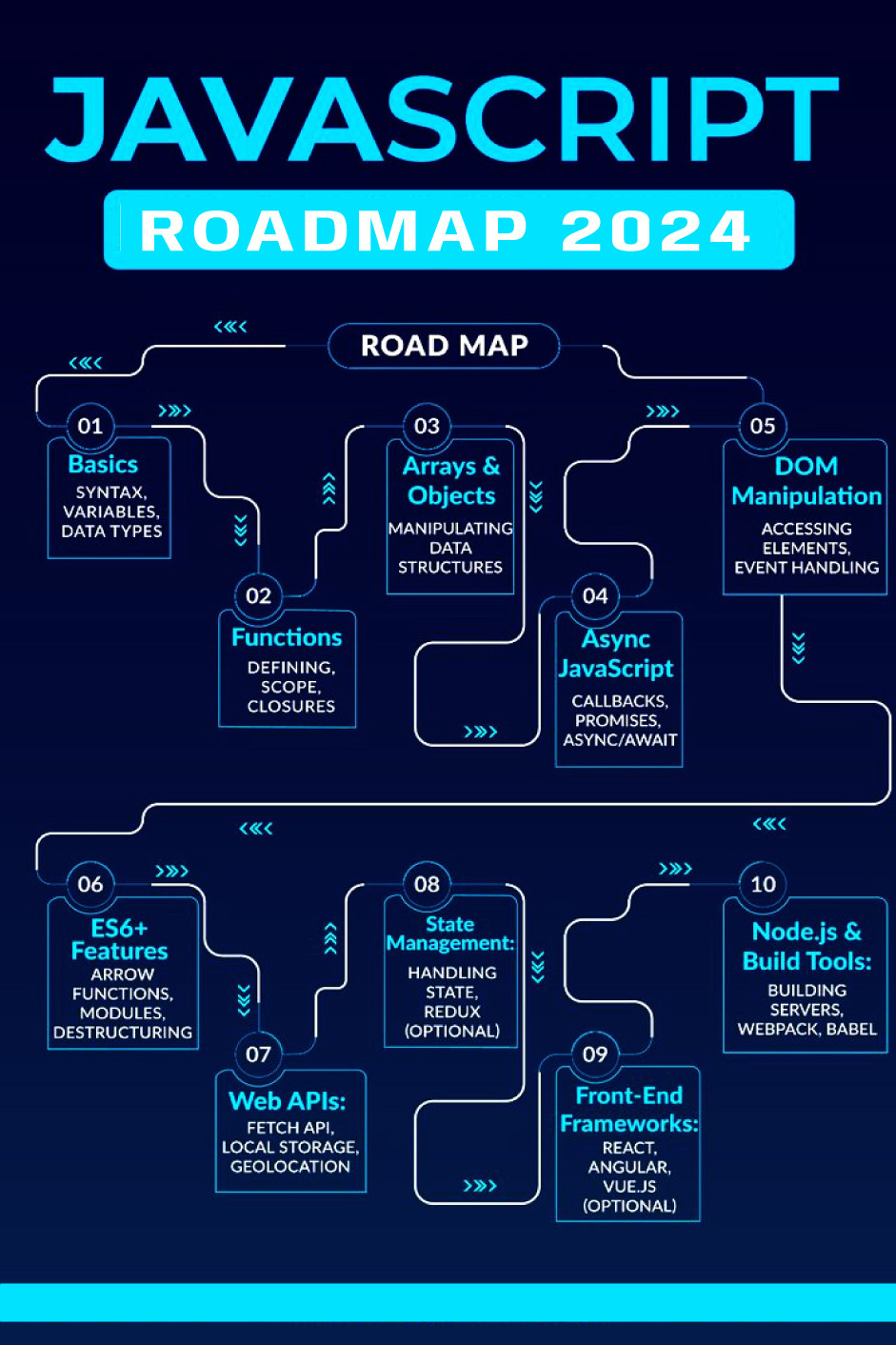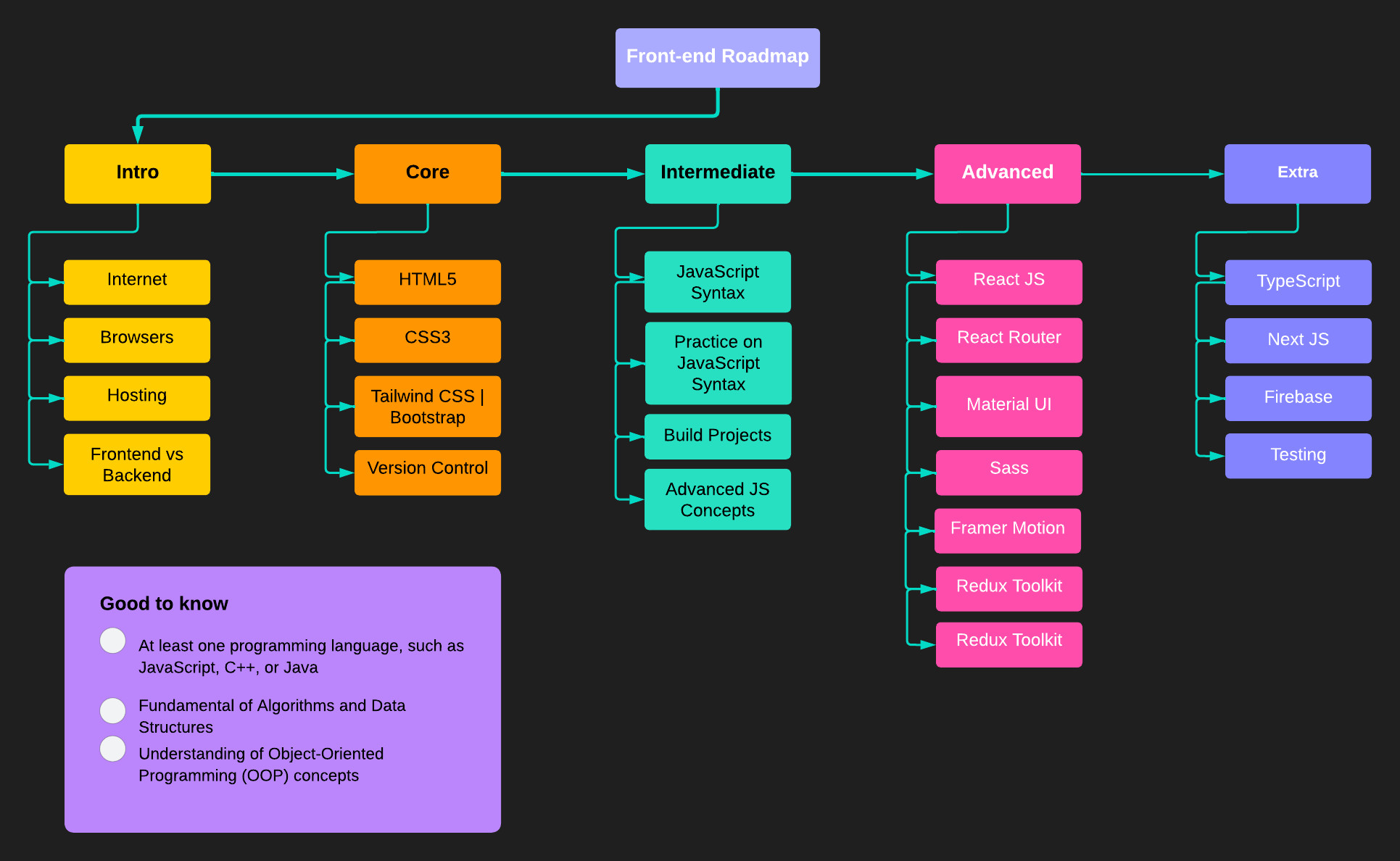Here are a few examples of front-end interview questions that could be asked in an interview:
### HTML/CSS Questions:
1. **What are the differences between block-level and inline elements?**
2. **Explain the CSS box model and its components.**
3. **How do you create a responsive web design? What tools or frameworks do you use?**
4. **What is Flexbox, and how does it differ from CSS Grid?**
5. **How can you implement CSS animations? Provide an example.**
### JavaScript Questions:
1. **Explain the difference between `var`, `let`, and `const`.**
2. **What are closures in JavaScript, and how are they used?**
3. **How does the event loop work in JavaScript?**
4. **What is the difference between `==` and `===`?**
5. **How do promises work in JavaScript, and what problem do they solve?**
### React Questions:
1. **What are the main differences between class components and functional components?**
2. **What are React hooks, and why are they useful?**
3. **How does the virtual DOM work in React?**
4. **Explain the concept of state and props in React.**
5. **What are the benefits of using React for front-end development?**
### General Front-End Questions:
1. **How do you optimize a website’s performance?**
2. **What are web accessibility standards, and why are they important?**
3. **Explain the concept of progressive enhancement and graceful degradation.**
4. **What are the key differences between single-page applications (SPA) and multi-page applications (MPA)?**
5. **How do you handle cross-browser compatibility issues?**
Thank you

JavaScript ROADMAP 2024
### 1. Core JavaScript:
- **ECMAScript**: Stay updated with the latest ECMAScript standards. ECMAScript 2024 brings new features and enhancements.
- **Async/Await**: Master asynchronous programming with async/await syntax, which simplifies working with promises.
- **Functional Programming**: Deepen your understanding of functional programming concepts like higher-order functions, pure functions, and immutability.
- **Modules**: Explore ES6 modules for organizing and modularizing your code.
- **Error Handling**: Learn best practices for error handling, including try/catch blocks and error objects.
### 2. Frontend Development:
- **React.js**: Master React for building dynamic and interactive user interfaces. Stay updated with React's latest features and ecosystem updates.
- **Vue.js**: Explore Vue.js as an alternative to React, known for its simplicity and flexibility.
- **State Management**: Understand state management libraries like Redux, MobX, or Vuex for managing complex application states.
- **Responsive Design**: Deepen your understanding of CSS and responsive design principles for building mobile-friendly web applications.
- **Web Components**: Learn about Web Components and frameworks like LitElement for building reusable UI components.
### 3. Backend Development:
- **Node.js**: Dive deeper into Node.js for building scalable and efficient server-side applications.
- **Express.js**: Explore Express.js for building RESTful APIs and web servers with Node.js.
- **GraphQL**: Learn GraphQL for building flexible APIs that provide clients with precisely the data they request.
- **Databases**: Master databases like MongoDB, PostgreSQL, or MySQL for storing and retrieving data in your Node.js applications.
- **Authentication & Authorization**: Understand secure authentication and authorization techniques using JWT, OAuth, or session-based authentication.
### 4. Full Stack Development:
- **Microservices Architecture**: Explore microservices architecture for building scalable and maintainable full-stack applications.
- **Containerization**: Learn Docker for containerizing your applications and Kubernetes for orchestrating containerized deployments.
- **Serverless Computing**: Explore serverless architectures using platforms like AWS Lambda, Azure Functions, or Google Cloud Functions.
- **CI/CD**: Implement Continuous Integration and Continuous Deployment pipelines for automating the build, test, and deployment processes.
### 5. DevOps & Tooling:
- **Version Control**: Master Git for version control and collaboration with other developers.
- **Testing**: Learn testing frameworks like Jest, Mocha, or Jasmine for writing unit tests, integration tests, and end-to-end tests.
- **Performance Optimization**: Understand performance optimization techniques for improving the speed and responsiveness of your applications.
- **Monitoring & Logging**: Implement monitoring and logging solutions to track application performance and diagnose issues in production.
- **Agile Methodologies**: Embrace Agile methodologies like Scrum or Kanban for iterative and collaborative software development.
### 6. Emerging Trends:
- **Machine Learning & AI**: Explore JavaScript libraries and frameworks like TensorFlow.js or Brain.js for building machine learning and AI applications in the browser.
- **Progressive Web Apps (PWAs)**: Learn about PWAs for building web applications that offer a native app-like experience, including offline capabilities and push notifications.
- **AR/VR Development**: Explore WebXR and libraries like A-Frame for building augmented reality (AR) and virtual reality (VR) experiences on the web.
- **Blockchain Development**: Dive into blockchain development with JavaScript using frameworks like Ethereum's Web3.js or Hyperledger Fabric SDK.
### 7. Soft Skills:
- **Communication**: Hone your communication skills for effective collaboration with team members and stakeholders.
- **Problem-Solving**: Practice problem-solving skills for tackling complex technical challenges and debugging issues.
- **Continuous Learning**: Cultivate a mindset of continuous learning to stay updated with the latest trends and technologies in the JavaScript ecosystem.
- **Community Engagement**: Get involved in the JavaScript community through open-source contributions, attending meetups, or participating in online forums like Stack Overflow or Reddit.
Remember, while this roadmap provides a comprehensive overview, it's essential to tailor your learning journey based on your interests, career goals, and the specific requirements of the projects you're working on. Happy coding!

Front-end development is the creation of the visual and interactive elements of a website or web application. This is what users see and interact with directly. Here's a roadmap to help you become a front-end developer:
**Fundamentals**
* **HTML** - Hypertext Markup Language provides the structure and content of a web page.
* **CSS** - Cascading Style Sheets defines the presentation of a document written in HTML or XML. It determines the layout, colors, and fonts of a web page.
* **JavaScript** - It adds interactivity to web pages. It allows you to create dynamic and responsive web pages.
**Learn the Fundamentals**
These are the essential building blocks of front-end development. You should get a solid understanding of these three languages before moving on. There are many resources available online and offline to learn HTML, CSS, and JavaScript.
**Build a Strong Foundation**
Once you have a good grasp of the fundamentals, it's time to start building your skills. Here are some additional areas to focus on:
* **Responsive Design** - Websites should look good and function properly on all devices, from desktops to mobile phones.
* **Accessibility** - Websites should be accessible to everyone, including people with disabilities.
* **Performance** - Websites should load quickly and efficiently.
* **Testing** - It's important to test your code to ensure that it works as expected.
**Frameworks and Libraries**
There are many frameworks and libraries that can help you build web applications more quickly and easily. Here are a few of the most popular ones:
* **React** - A JavaScript library for building user interfaces.
* **Angular** - A TypeScript framework for building web applications.
* **Vue.js** - A progressive JavaScript framework for building user interfaces.
**Advanced Topics**
Once you have a solid foundation in the basics, you can start exploring more advanced topics such as:
* **Server-Side Rendering (SSR)** - A technique for rendering web pages on the server before sending them to the client.
* **Single-Page Applications (SPAs)** - Web applications that load a single HTML page and dynamically update the content without reloading the entire page.
* **WebAssembly** - A low-level language that can be compiled to run in web browsers.
**Build Your Portfolio**
A portfolio is a great way to showcase your skills and experience to potential employers. Start building your portfolio early and keep it up-to-date with your latest projects.
**Stay Updated**
The world of web development is constantly evolving. It's important to stay up-to-date with the latest trends and technologies. There are many resources available online and offline to help you stay informed.
Here are some additional tips for becoming a front-end developer:
* **Practice** - The more you practice, the better you will become.
* **Get involved in the community** - There are many online and offline communities for front-end developers. Get involved and learn from others.
* **Never stop learning** - The world of web development is constantly changing. Never stop learning and growing your skills.

Welcome to Noor Talk Learn Programming Page!
Get ready to embark on an exciting journey into the world of programming! I'm MD NOOR ISLAM, a dedicated enthusiast eager to guide you through the fundamentals and intricacies of coding. This page serves as your gateway to acquiring essential programming skills, with curated resources, tutorials, and tips to help you succeed. Whether you're a complete beginner or looking to advance your knowledge, you'll find valuable insights and practical guidance here. Let's unlock the power of coding together and pave the way for endless opportunities in the ever-evolving tech industry. Happy learning!